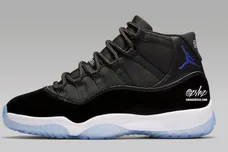Probably not as Finally Rich falls short of the hype surrounding it.
Finally Rich certainly does have an allure to it. Keef’s undeniable talent for catchy hooks and his ability to transmute energy to sound is appealing. Plain and simple. However, this appeal is primal, subliminal. Much like reality TV and street fights, Finally Rich is filled with culturally “low-brow” content that is nonetheless entertaining. Cut to six or seven records and the album could pass as a guilty pleasure.
At 12 tracks however, the explicit technical shortcomings of Finally Rich vastly outweigh its implicit merits.
The album is plagued by repetitive beats and lyrics, gurgled auto-tune and generally uninspired, even lazy execution. Virtually every song on the album exemplifies this, but none to the effect of “Laughing to the Bank.” The song has a distinct amateur feel to it and Keef’s deadpan “ha ha ha” repeats throughout the record, infiltrating bars and permeating ad libs. This unceremonious weaving of chorus, lyrics and ad libs also persists throughout the album. That repetition coupled with the album's nearly identical beats births and promotes a singular flow that’s sometimes effective, but wholly one-dimensional.
Another issue is the content in Keef’s lyrics. Though vice and violence is part and parcel of rap culture they are usually instruments in the records, more narrative than anything. The rhetoric throughout Finally Rich is sadly reflective of Chicago’s chaotic environment, but simultaneously enforces it. Therein lies much of the debate behind Chief Keef, but that's another discussion.
Still, like a crumpled bill in the grass, rare moments of sincerity and struggle do surface and distract from the album’s failings.
Keef raps “All I know is go hard/because I got a daughter” on “No Tomorrow” and even named one of the album cuts after his child (“Kay Kay”). The opening monologue of “Ballin’” tells of Keef’s determination to become what he is and how he avoided even his kid sister’s forecasts of his future, hinting at the complex psychology behind the rapper. Honestly, had Keef explored these themes more directly his technique would be more of a distraction than a glaring deficiency.
The potential is definitely there. Keef keeps pace (or outpaces) each of the album's featured artists on tracks like "Hate Being Sober" and "Understand Me."
Regardless, if the rant preceding “Love Sosa” is any indication, Finally Rich doesn't need to be a technical marvel to leave a clear imprint on this year’s catalogue of rap music.
Chief Keef has some of the most loyal and supportive fans in the game. Those fans will thoroughly enjoy this album. Where the music is concerned however, hopefully Chief Keef’s next project is more sincere and ambitious.









